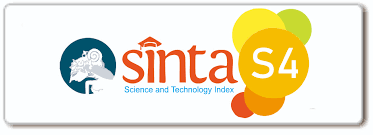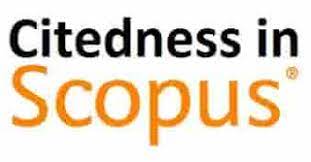Confronting Extremism and Radicalisation in Afghanistan: Educative Approach
DOI:
https://doi.org/10.59373/attadzkir.v4i1.80Keywords:
Extremism, Political instability, Islamic Moral System Module, RadicalsAbstract
Extremism and radicalisation are not a new phenomenon in Afghanistan. Since the end of Soviet occupation in 1989, Afghanistan underwent several phases of challenges, either in the form of political instability, economic crisis, civil war, or foreign intervention due to geopolitical interests. One of the most challenging problems that Afghanistan has been facing is the threat of extremism and radicalisation resulting from multivariate factors. Extremist ideologies such as Salafi-jihadism, the presence of radical ideologues, and foreign intervention inside Afghanistan has intensified the challenge of extremism and radicalisation. In light of this reality, this article seeks to analyse how the government of Afghanistan deals with the problem of extremism and radicalisation in their midst through an educative approach or educational programs that they implement in higher learning institutions. Specifically, this article seeks to examine to what extent the implementation of a nation-building module known as ‘The Islamic Moral System Module (I.M.S.M.) has been effective in mitigating the problem of extremism, radicalisation and, at the same time, nation-building in post-war Afghanistan. Using mixed methods, the article looks into the implementation of IMSM on undergraduate students at Balkh University in Afghanistan between 2017 and 2020. The implementation of the IMSM module indicates that the educative approach produced positive results in nation-building. However, the educative approach needs to be tailored according to the nature of the challenge and context of the historical background of the country.
Downloads
References
Abbas, H. (2008). A profile of Tehrik-iTaliban Pakistan. Combating Terrorism Centre at West Point, 1(2), 1-20. Australian, G. A. (2013). Issues Paper: The Pakistani Taliban. Australia.
Abboud, Al Amri Salah. (2012). Tarikh Afghanistan watatawuriha alsiyasii. (History of Afghanistan and its Political Development). Cairo: Dar al-Arabi for publishing and distribution, p. 30.
Abdul Baqi Misbah. (2009). “Higher Education in Afghanistan,” Policy Perspectives 6, no. 2. <http://www.jstor.org/stable/42909239>.
Abdul Khaliq Karimi. (1397 A.H). Baznegari Nisab tahsili Daneshgah, (Revision of the University Curriculum), (Herat, Afghanistan, publishing Diqat).
Abdul Rahman Sherzad. (April 2017). “Education in Afghanistan: Challenges and Suggestions for Improvement,” Technique University Berlin, ResearchGate.
Afghanistan Ministry of Information and Culture. (2002). “Salameh Afghanistan,” (Afghanistan year book) Kabul.
Afghanistan Statistical Yearbook. (2019). (NISA), Issue NO: 41, May (2020), pp. 63-67. https://www.almendron.com/tribuna/wpcontent/uploads/2021/08/afghanistanstatisticalyearbook20191stversion.p
Afshin Vakili. (Winter 1391 A.H). “Akhlaq Academic,” (Academic ethics), Comprehensive humanities portal, no.5. <http://ensani.ir/file/download/article/20131209102000-9894-1.pdf>.
Alhabshi, S. (1993). “Management ethics from Islamic perspective,” Proceedings: Arab Management Conference, University of Bradford, and Bradford, UK.
Alvin, L. P. (2022, February 9). Afghans struggle with humanitarian crisis, millions on brink of starvation . Retrieved from ABC News: https://abcnews.go.com/International/afghans-struggle-humanitarian-crisis-millions-brinkstarvation/story?id=82685490
Asrori, Saifudin. (2019). Mengikuti Panggilan Jihad; Argumentasi Radikalisme dan EkstremismEe di Indonesia. Jurnal Aqlam – Journal of Islam and Plurality –Vol. 4 No, pp. 120-121.
Basir Ahmad. (1381 A.H). Shenasnameh Afghanistan, (Afghanistan birth certificate), (Tehran, Irfan publishing house).
BBC News. (2018). Ideal Taliban chist? Farsi, (What is the ideal of the Taliban?). [online]. Available at: https://wwwbbccom.cdn.ampproject.org/v/s/www.bbc.com/persian/blogviewpoints46246736.amp?
Bishdar Hussein Ali. (1988). Afghanistan, dirasatun hamah, (Afghanistan, a general study), (Islamabad: Hurriyet).
Britannica, T. (June 29, 2021). Editors of Encyclopaedia. "Balkh," Encyclopedia Britannica. <https://www.britannica.com/place/Balkh>.
Clayton Thomas. (November 2, 2021). Taliban Government in Afghanistan: Background and Issues for Congress. Congressional Research Service https://crsreports.congress.gov R46955.
Collins, j. j. (2011). Understanding war of Afghanistan. Washington, D.C: National Defense University Press.
Definition of extremism". Merriam-Webster Dictionary. Retrieved 14 May 2024. http://www.merriam-webster.com/dictionary/extremism.
Engward Hilary, “Research Methodology: A Step-by-Step Guide for Beginners,” Accessed October 4, 2023. <https://doi.org/10.7748/nr.19.3.45.s5>.
Extremism – definition of". The Free Dictionary. Retrieved 10 May 2024.
George, T. (2023, June 22). Mixed Methods Research | Definition, Guide & Examples. Scribbr. Retrieved August 23, 2024, from https://www.scribbr.com/methodology/mixed-methods-research/
Gérard Chaliand, & Arnaud Blin. (2007). The History of Terrorism from Antiquity to Al Qaeda. Translated by Edward Schneider. Kathryn Pulver, Jesse Browner, California, University of California Press. Ltd, pp. 221,222.
Gerhard, Bowering. (2013). The Princeton Encyclopedia of Islamic Political Thought. Princeton and Oxfordshire. Princeton and Oxford, p. 484.
Ghbar, Mir Ghulam Muhammad. (2012). Afghanistan dar massir Tarikh. (Afghanistan on the path of history). Kabul, Afghanistan. Mohsen publications, vol. 1, 6.
Gupta, K. (2022, April 10). Taliban drafting education-for-all plan, minister says as girls wait. Nikkei Asia. https://asia.nikkei.com/Politics/International-relations/Afghanistan-turmoil/Talibandrafting-education-for-all-plan-minister-says-as-girls-wait
Habibi, Abdul Hai. (1967). A short history of Afghanistan. Publisher, Book Publishing Institution with Cooperation by the Historical Society of Afghanistan. Kabul, Afghanistan.
http://www.thefreedictionary.com/extremism.
Hyman, A. (1984). The Land and the People in History in Afghanistan Under Soviet Domination. 1964–83. Palgrave Macmillan, London. https://doi.org/10.1007/978-1-349-17443-0_1
Jackson, A. (2009). The cost of war: Afghan experiences of conflict, 1978-2009. Kabul: Afghan Civil Society Forum.
Karlsson, P., & Mansory, A., (2008). “Islamic and modern Education in Afghanistan: Conflictual or complementary,” Institute of International Education, Stokholm University, Stockholm.
Khwaja Mir, Mehtar khan & Meram Konya. (2016). History and Problems of Education in Afghanistan. SHS Web of Conferences, vol. 26 No. 01124.
Krickus, R. J. (2011). The Afghanistan question and the reset in U.S.-Russian relations. Carlisle: Strategic Studies Institute.
Kugelman, M. (2022, March 31). The Taliban Hard-Liners Are Winning. Foreign Policy. https://foreignpolicy.com/2022/03/31/afghanistan-taliban-hard-liners-girls-education-pressfreedom/
Lemar-Aftaab. (2004, March 1). History of education in Afghanistan—Afghanistan. ReliefWeb. https://reliefweb.int/report/afghanistan/history-education-afghanistan
Luke, Griffin. (14 January 2002). "The Pre-Islamic Period. Afghanistan Country Study. Illinois Institute of Technology. Archived from the original on 3 November 2001. Retrieved 14 October 2010. https://web.archive.org/web/20011103002246/http://www.gl.iit.edu/govdocs/afghanistan/PreIslamic.html
Matthews, M. M. (2011). “We have not learned how to wage war there” the soviet approach in Afghanistan 1979-1989.
Merdith, L. Runion. (2017). “The history of Afghanistan,” Westport, Connecticut, London, Greenwood Press.
Mielke, K., & Miszak, N. (2017). Jihadi-Salafism in Afghanistan - beyond Taliban, al-Qaeda and Daesh: options for German foreign and development policy. (BICC Policy Brief, 6/2017). Bonn: Bonn International Center for Conversion (BICC). https://nbn-resolving.org/urn:nbn:de:0168-ssoar-62317-9.
Ministry of Defense. (2011). Geopolitical Analysis of Afghanistan. Spain: Spanish institute for strategic study.
Ministry of Higher Education of Afghanistan. Catalog Government universities and institutions of higher education, Department of Information, Publications and Public Relations (2020). https://mohe.gov.af/sites/default/files/202010/%D8%A7%D9%86%D8%AF%D8%A8%D9%88%DA%A9.pdf.
Misbah, Abdul Baqi. (2009). Higher Education in Afghanistan. Policy Perspectives 6 No. 2: 100–106. http://www.jstor.org/stable/42909239.
Nabawi, Sayyed Abdul Amir, & Sayyed Ali Nejat. (2013). Syrian neo-Salafi groups based on discourse analysis. Islamic World Political Research Quarterly 4th year, 4th issue, p. 145.
Rahimi, Mujib Rahman. (2017) Introduction. In State Formation in Afghanistan: A Theoretical and Political History, 1–17. Library of International Relations. London New York: I.B. Tauris. Accessed May 8, 2024. http://dx.doi.org/10.5040/9781350988231.0006.
Runion, Merdith, L. (2017). The history of Afghanistan. Westport Connecticut London. Greenwood Press.
Vocabulary.com. (n.d.). Radicalize. In Vocabulary.com Dictionary. Retrieved May 31, 2024, from https://www.vocabulary.com/dictionary/radicalize.
Watkins, Andrew H. (2021). Cruickshank, Paul; Hummel, Kristina (eds.). An Assessment of Taliban Rule at Three Months. (PDF). CTC Sentinel. 14 (9). West Point, New York: Combating Terrorism Center: 1–14. Archived (PDF) from the original on 29 November 2021. Retrieved 29 November 2021.
Weinbaum, M. G. (2006). Afghanistan and its Neighbors. Washington, DC: United States institute of peace.
Downloads
Published
How to Cite
Issue
Section
License
Copyright (c) 2024 Khalid Kamal Saim, Ahmad El-Muhammady

This work is licensed under a Creative Commons Attribution-ShareAlike 4.0 International License.

At-Tadzkir: Islamic Education Journal by Perkumpulan Dosen Tarbiyah Islam Indonesia is licensed under a Creative Commons Attribution-ShareAlike 4.0 International License.
Based on a work at http://at-tadzkir.pdtii.org/index.php/tadzkir/index.








